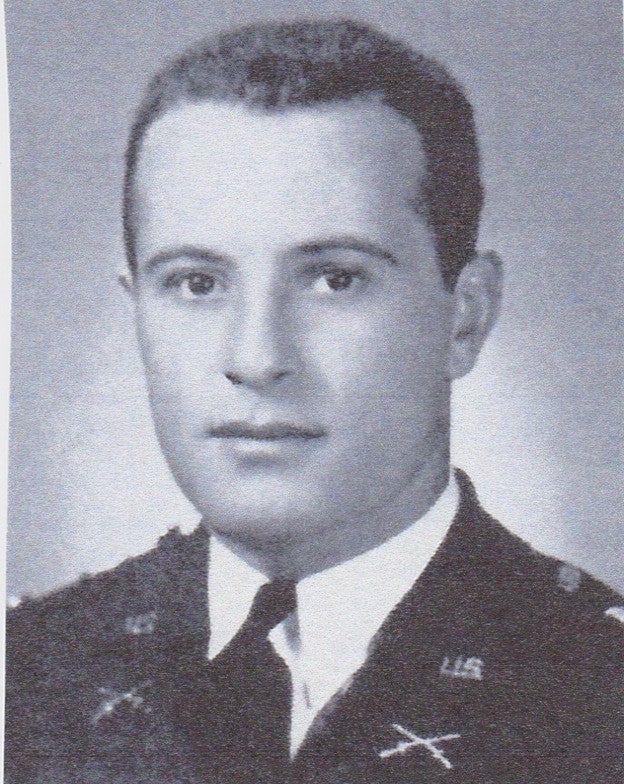- First Lieutenant
- WW II
Biography
Louis James Romano was born in Bristol, Rhode Island on 8 January 1920. He was the son of John and Mary Romano. Louis was a 1938 graduate of Colt High School, Bristol, where he was an outstanding scholar and athlete. Louis entered Rhode Island State College (RISC) in September 1938 with the class of 1942, majoring in Civil Engineering. He was a member of Beta Psi Alpha Fraternity, the baseball team, the American Society of Civil Engineers and the Scabbard & Blade Military Society. Louis participated in the Army ROTC program and was commissioned a Second Lieutenant of Infantry upon graduation in June 1942.
Immediately following graduation, he attended the Infantry Officer Basic Course, Fort Benning, Georgia and deployed to England as an Infantry Platoon Leader with the First Infantry Division. The First Infantry Division and one regimental combat team from the 29th Infantry Division comprised the first wave of troops that assaulted German Army defenses on Omaha Beach on D-Day. The division had to run 300 yards to get to the bluffs, with some of the division’s units suffering 30 percent casualties in the first hour of the assault.
The First Infantry Division secured the beachhead by the end of the day and then drove across France in a continuous offensive, reaching the German border at Aachen in September 1944. The city and its fortified surroundings were laid siege from mid-September to mid-October 1944. Sadly, 1LT Romano was severely wounded during a combat assault on Aachen and died of his wounds on 10 October 1944. He was posthumously awarded the Purple Heart Medal and the Combat Infantryman Badge.
His body was returned to the United States for burial with full military honors in Saint Mary’s Cemetery, Bristol, Rhode Island. First Lieutenant Louis James Romano was a son of Rhode Island State College who answered the call to service during World War II and gave his life in service to America and Rhode Island. He was another member of the “Greatest Generation.”
Education
1942

